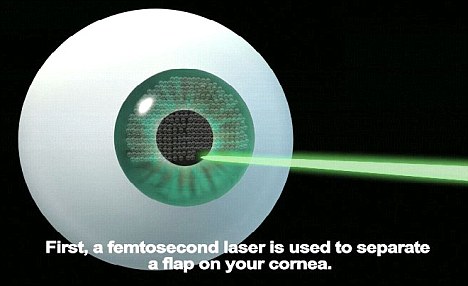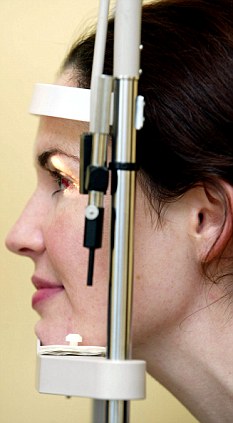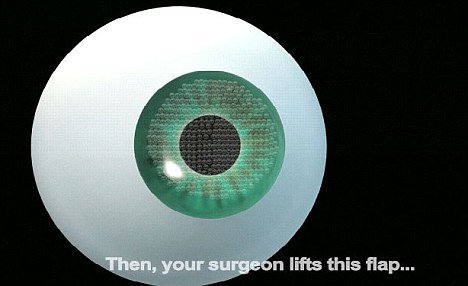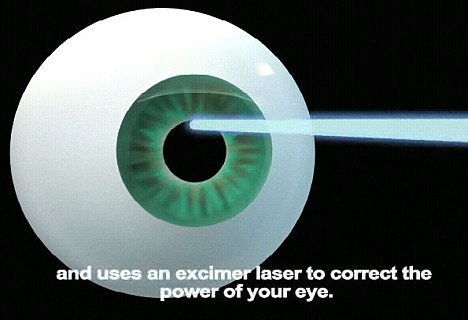俗话说,四十七八,两眼犯花。上了年纪,眼睛老视不可避免。英国9月12日开始启用一种新疗法,在角膜内植入微型环,无痛治疗老花眼,摆脱眼镜烦恼。

不过,专家提醒,这种疗法并不适用于所有老视患者。
这一疗法在美国加利福尼亚州开发并不断完善,耗资7000万美元。手术核心是在角膜内植入微型环,调节角膜屈光度,使影像投射到视网膜时完全聚焦。
6年前,一些老视患者勇敢尝鲜,第一批接受手术。研究人员定期检查他们的眼睛状况,发现植入的微型环没有出现任何问题。
去年开始,欧洲一些国家和日本的6000多人接受这种手术治疗。

12日开始,英国人可以自费选择这种手术。单眼手术费2800英镑(约合4480美元),双眼手术费4600英镑(7360美元)。
英国眼科医生戴维•阿拉姆比对这种治疗视力受损的新方法表示欢迎。他告诉英国《每日邮报》记者,找到一种老视疗法具有重要意义。
阿拉姆比说,随着年龄增长,角膜后面的晶状体从富有弹性的透明体逐渐硬化,眼部肌肉调节能力逐渐减退,聚焦能力逐渐下降,难以获得清晰影像,“大多数45岁以上人群有这种体验:看菜单或者地图突然变得困难,而我们驾车时需要的远视能力依然良好”。

阿拉姆比说:“到50岁时,晶状体的弹性丧失90%。只有那些天生近视的少数人依然能够轻松阅读,但他们看远处时可能需要佩戴眼镜。”
伦敦人特雷莎•弗格森现年53岁,从事保健工作,上个月接受这种手术治疗,成为英国“第一个吃螃蟹的人”。
谈及手术,弗格森显得颇为高兴。她说:“45岁以前,我的视力一直很好;之后开始下降。在工作中,我需要看小号字体。”
手术时,“我感到紧张,其实不疼,只是有些不舒服,手术只用了15分钟”。术后,视力立即改善。

不过,这种手术并不适用于所有老视人群。专家建议,70岁以上老人慎用。
英国眼科医学院院长拉里•本杰明对这一疗法持怀疑态度。他说:“这是一种有趣的方法,但并非每个人都适用。对某些特殊职业,譬如飞行员而言,夜视能力颇为重要,他们可能不适合这一疗法。”
生物探索推荐英文阅读:
Millions of Britons who suffer from long-sightedness could now have their vision fully restored following groundbreaking treatment.
With an estimated 23 million experiencing partial difficulty with their ability to see, new procedures could now end the need for reading glasses.
Four million patients are now expected to have the operation over the next decade with the practice set to be made available to private patients as of tomorrow, which costs £2,800 for one eye and £4,600 for the pair.
The technique, developed by scientists, sees a microscopic ring placed in the cornea, which in turn allows only focused light to reach the retina, and subsequently improves vision for all distances.
More than 6,000 treatments have been carried out since last year in Europe and certain parts of Japan.
Dr David Allamby, an ophthalmologist is delighted with the progress in the attempt to cure impaired vision.
He said: Finding a treatment for presbyopia is important.
'As we age, the crystalline lens, which sits behind the cornea and acts like a zoom, stiffens from a squashy gel-like substance to a fixed structure.
'This makes it harder for muscles to squeeze it into shape to get a clear image.
'Most over-45s will know that feeling: suddenly struggling to read menus or maps, but our longer sight for driving, say, remains good.
'By the age of 50, 90 per cent of your lens flexibility is lost.
'The only people who still read easily are those who were born short-sighted, but who already use glasses for distance.
'This is like granting immunity from ageing, at least for your eyes.'
Scientists have been monitoring a number of patients who six years ago were amongst the first to undergo the operation.
And results from the implants have shown no signs of any problems.
However warning signs have been raised for those over 70 who might be keen on the procedure.
Furthermore, chairman of the Royal College of Ophthalmologists, Larry Benjamin was sceptical, insisting:
'This is an interesting concept. But it won't suit everyone and I imagine certain professionals such as pilots, where night vision is important would not be allowed it.'
In the UK, Londoner Theresa Ferguson, 53, became the first Brit to undergo the procedure last month.
And she has spoken of her delight with the routine surgery saying: 'I had brilliant eyesight until I was 45. Then I began struggling. I need to read small print for work.
The health worker then described the immediate improvement in her vision.
'I was nervous, but it was painless, although uncomfortable. It took 15 minutes.'
The technique, developed in California cost $70 million in order to perfect, before being recently made available to the public worldwide.







